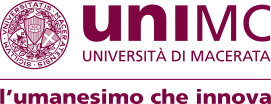
The Maria Curie-Skłodowska University (UMCS) is the largest higher education institution in Eastern Poland with 23 research departments among 11 faculties in Lublin plus a branch campus in Puławy. UMCS teaches 21.000 students, of whom over 1600 are foreigners. Internationalisation is a key priority of the University. UMCS is a member of international research networks with regard to the disciplines involved in the project: European Sociological Association, International Communication Association, European Communication Research and Education Association, Inter-University Center for Human Rights and Democratization. The University is also a member of multiple clusters including: Lublin EcoEnergy Cluster, Biotechnology Cluster and the Eastern Cluster ICT. A number of R&D cooperation contracts have recently been signed with the largest Polish companies and employer associations. UMCS is also a member of the Lublin Medicine-Medical Wellness Cluster, founded by the City of Lublin and the Medical University of Lublin.

KU Leuven (Belgium) is dedicated to education and research in nearly all fields. Its fifteen faculties offer education, while research activities are organized by the departments and research groups. These faculties and departments, in turn, are clustered into three groups: Humanities and Social Sciences; Science, Engineering and Technology (SET); and Biomedical Sciences. Each of these groups has a doctoral school for its doctoral training programmes. For research, KU Leuven ranks among the world’s finest. It has become a cosmopolitan institution in a rapidly changing urban environment. Its unique profile reconciles cutting-edge science with quality of life and openness to talent. KU Leuven will celebrate its 600th anniversary in 2025, making it one of Europe’s oldest universities. Today, KU Leuven accommodates 50,000 students, spread across the fourteen campuses in 10 cities in Flanders. The University and University Hospitals Leuven each employ almost 10,000 people.

The University of Macerata is one of the oldest universities in Italy (founded in 1290), with 13.000 students enrolled and with a staff of about 600 people. It is the only Italian university that focuses exclusively on Socio-economic Sciences and Humanities (SSH). As outlined by its motto “Innovation through Humanities”, the University of Macerata’s mission is to contribute to the development of society through the added value that social and human sciences can bring to the understanding of our complex society. Advanced interdisciplinary research, focused on excellence and internationalisation, is promoted by encouraging synergies among technology, innovation, humanities and social sciences. It contributes with interdisciplinary research, amongst others, on the economic, ethical and legal aspects raised by digital technologies such as Artificial Intelligence in the Health sector and on the topic of stakeholder engagement in the process innovation.

Eurocentro S.r.l. is an Italian private organisation active in the design and implementation of interdisciplinary and intersectoral EU projects, and more in general in actions involving all relevant stakeholders, to support territorial development, and international cooperation. During its 20 years of activities, it has cooperated across Europe with a long series of public and private organisations (including universities, public authorities and businesses) at national and international level, with regard both to designing and managing EU projects and to developing institutional strategies for attracting more external funds. It has a wide experience in managing, coordinating, implementing, evaluating and disseminating European projects in different fields and within various regional, national and European programmes, such as HORIZON 2020, ERASMUS+, ADRION, Italy-Croatia CBC Programme, Civil Protection Action, SEE Programme, MED Programme, IPA Adriatic, LIFE, INTERREG Programme, EQUAL Community Initiative.
